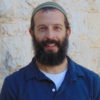“In choosing a way to mark Shmita, inspired by the Hakhel ceremony in this week’s parsha, we will be honoring our heritage and rededicating ourselves to the earth, the environment, and the Torah.” In our parsha, Vayelech, Moses instructs the priests to gather the nation every seven years for a public reading of the Torah. The text reads as follows: “Moses wrote down this Teaching and gave it to the priests…Moses commanded them saying: at the end of 7 years, at the time of Shmita on Sukkot – when all of Israel comes to appear before God… you shall read this Teaching aloud in the presence of all Israel.” This commandment is called Hakhel, which means a public gathering. In Jerusalem while the Temple stood, the king would address the public with verses from the Torah. This practice was revived in modern times, with the first official ceremony taking place in Jerusalem in 1945. The reason Sukkot was chosen, according to the Etz Hayyim Chumash, is that it was the best-attended of the pilgrimage holidays. People were able to focus on the teaching because they had already stored their harvest and felt secure about their food supplies for the coming […]














